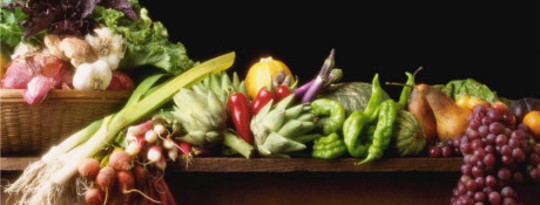
Eating an organic diet for a week can cause pesticide levels to drop by almost 90% in adults, research from RMIT University has found.
The study, led by Dr Liza Oates found participants' urinary dialkylphosphates (DAPs) measurements were 89% lower when they ate an organic diet for seven days compared to a conventional diet for the same amount of time. DAPs make up 70% to 80% of organophosphate pesticides.
Dr Oates said having the same people experience a large drop in organophosphate pesticide levels when consuming organic foods as opposed to conventional foods suggested most of these pesticides come from food consumption. However, she recognised it could come from other sources.
“The people in the organic phase (of the study) still did have some exposure, so there are obviously some alternate routes of exposure,” she said.
Get The Latest By Email
This idea was supported by University of Adelaide toxicologist Dr Ian Musgrave.
“We’re exposed to pesticide residues in a number of ways,” he said. “The study is quite good in the way they exposed food exposure, but the possibility is there are other explanations for why they’re seeing this.”
Dr Musgrave said people who lived outside of urban areas often had higher exposures to pesticide, despite the fact that they were less likely to be consuming vast quantities of pesticide-contaminated food.
Dr Oates said people can be exposed to pesticides through inhalation and skin absorption.
“There is some emerging research suggesting some links between chronic low-dose exposure to OPs and some issues with the nervous system and that’s not surprising because the activities of these agents is they are toxic to the nervous system to humans,” she said.
“A lot of these agents were initially developed as nerve gases for chemical warfare, so we do know they have toxic effects on the nervous system at high doses.
“What’s less clear is at what dose they’re considered to be completely safe and that’s probably very different for different individuals depending on other factors like their ability to eliminate and detoxify these chemicals.”
Dr Musgrave said pesticide exposure was not a concern for many Australians.
“More than half of these people had no detectable pesticides in them or no quantifiable pesticides so the risk is already fairly low. The levels we see in urinary excretions from a variety of Australian populations suggests that the vast majority of people who are not working in industrial occupations that involve spaying of OPs are exposed to well below this no-effect level.”
University of New South Wales visiting fellow and nutritionist Rosemary Stanton said the study may indicate organic food is a healthier option.
“It could if repeated in a much larger sample with more details,” she said. “Evidence is being published to support organic food production.”
Dr Oates said the participants' diets were rigorously kept in check.
“We had a fairly detailed diet diary which we had previously piloted on another group of people. We asked people if their sources were certified organic or "likely organic”. During the organic phase the participants consumed, on average, 93% organic food. That includes certified and "likely organic” sources."
Dr Oates said 83% of the participants' organic diets were made up of certified organic food, meaning only 10% was “likely organic” food.
This article originally appeared on The Conversation
About the Author
Dinny Navaratnam is a journalism graduate and Editor at The Conversation.
Recommended Book:
Food Inc.: A Participant Guide: How Industrial Food is Making Us Sicker, Fatter, and Poorer-And What You Can Do About It -- edited by Karl Weber.
 Where has my food come from, and who has processed it? What are the giant agribusinesses and what stake do they have in maintaining the status quo of food production and consumption? How can I feed my family healthy foods affordably? Expanding on the film’s themes, the book Food, Inc. will answer those questions through a series of challenging essays by leading experts and thinkers. This book will encourage those inspired by the film to learn more about the issues, and act to change the world.
Where has my food come from, and who has processed it? What are the giant agribusinesses and what stake do they have in maintaining the status quo of food production and consumption? How can I feed my family healthy foods affordably? Expanding on the film’s themes, the book Food, Inc. will answer those questions through a series of challenging essays by leading experts and thinkers. This book will encourage those inspired by the film to learn more about the issues, and act to change the world.
Click here for more info and/or to order this book on Amazon.







